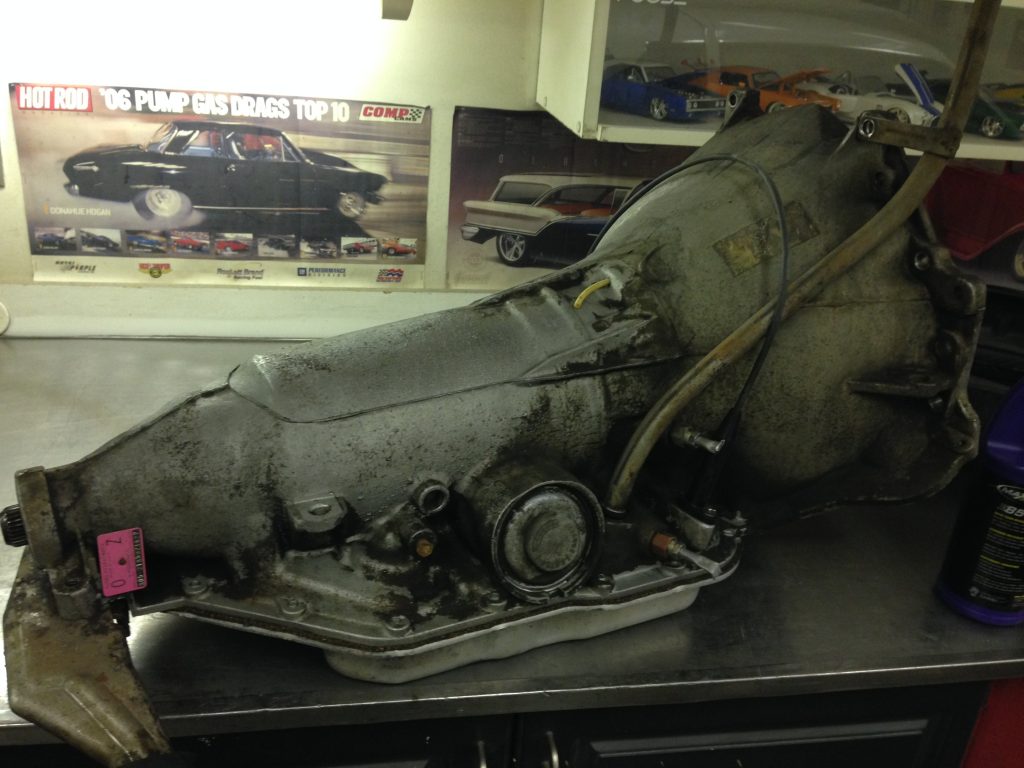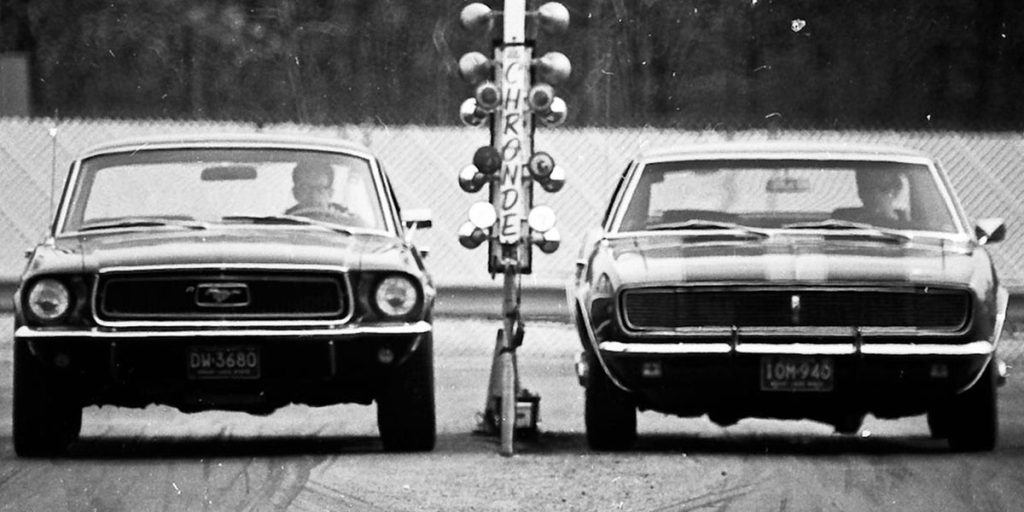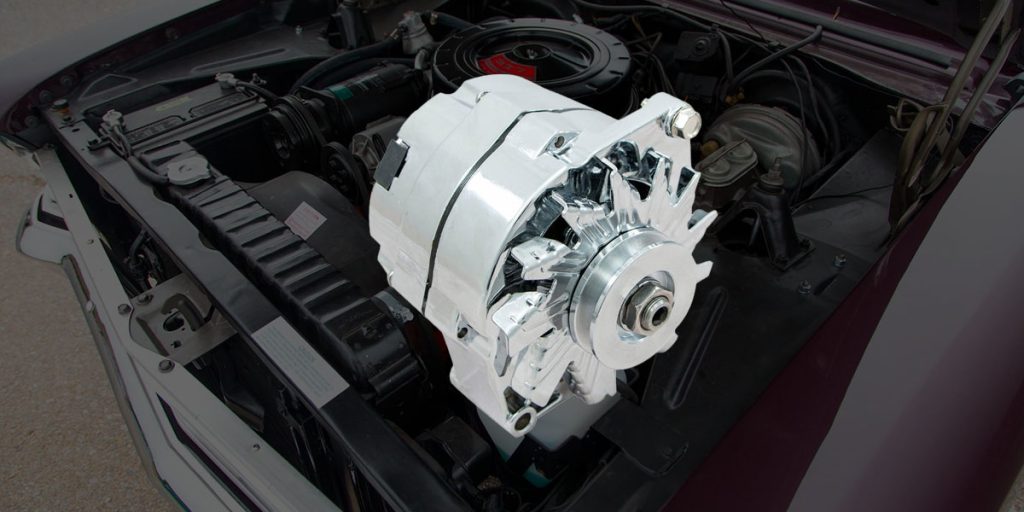Which Classic GM Transmission Is Best For Your Ride?
TH350? M22?When it comes to classic GM drivetrains, few debates spark more garage talk than which transmission to go with: manual or automatic? If you’re in the latter group, you have a few choices. From the bulletproof TH400 that powered muscle-bound big blocks to the compact, street-friendly TH350, and the later overdrive options like the 700R4 and 200-4R, each has earned its reputation through decades of abuse. Choosing the right one isn’t just about bolt patterns, it’s about gearing, physical size, torque capacity, drivability, and how you plan to use your car. You might be building a weekend cruiser, a highway hauler, or a quarter-mile bruiser but understanding the strengths and quirks of these four GM heavy hitters will help you match your transmission to your horsepower, budget, and lifestyle.
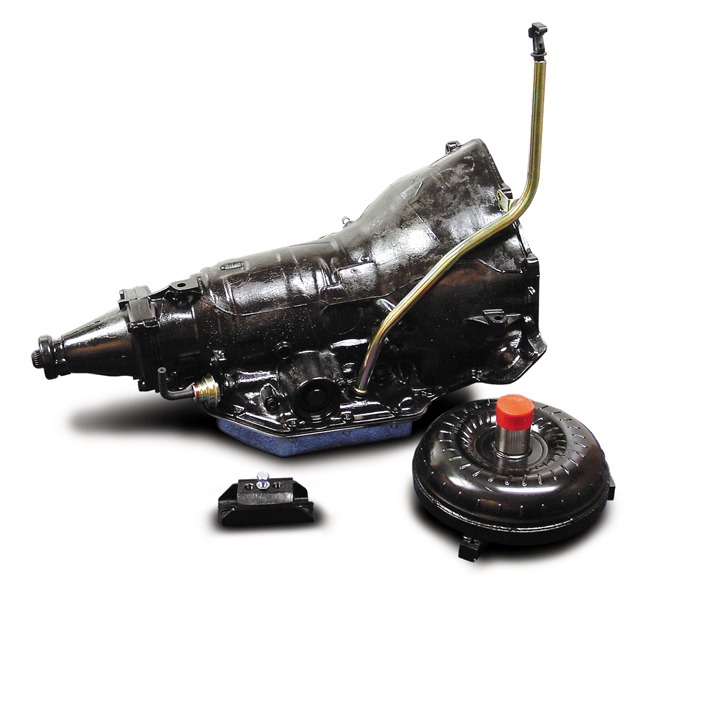
The Short Take
TH350: Light, compact 3-speed. Cheap, easy, good street/strip up to moderate power. No overdrive.
TH400: Heavy-duty 3-speed. Factory brute for big torque builds. No overdrive.
700R4 (early 4L60, non-electronic): 4-speed with deep 1st (3.06) + 0.70 OD. Great for street cars needing highway manners. Critical TV cable setup.
200-4R: 4-speed with good ratios (2.74/0.67), compact case, usually dual-pattern bell. Loved for G-bodies and classic swaps. Critical TV cable; build it right and it’s a sleeper.
Gear Ratios - Stock
| Transmission | 1st | 2nd | 3rd | 4th/OD |
|---|---|---|---|---|
| TH350 | 2.52 | 1.52 | 1.00 | — |
| TH400 | 2.48 | 1.48 | 1.00 | — |
| 700R4 | 3.06 | 1.62 | 1.00 | 0.70 |
| 200-4R | 2.74 | 1.57 | 1.00 | 0.67 |
What these ratios mean:
Launch: 700R4’s 3.06 first is the stump-puller; 200-4R is next. TH350/400 feel “longer” out of the hole.
Cruise: 700R4 drops RPM ~30% in OD; 200-4R ~33%.
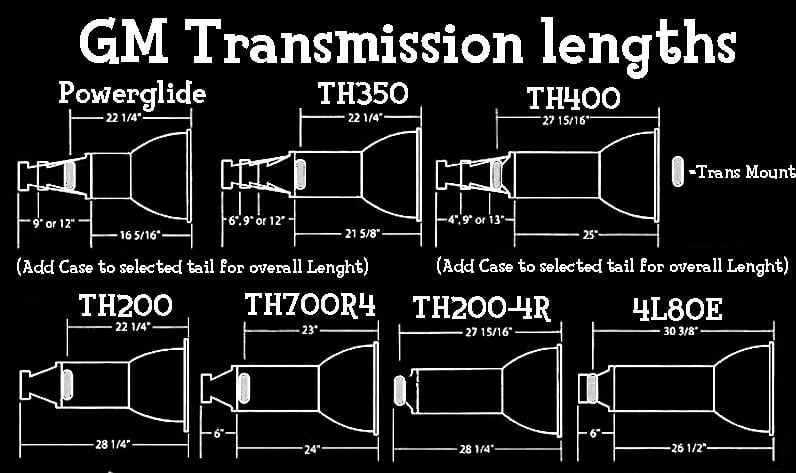
Physical Size, Mounting & Driveline Bits
TH350: Three tail lengths existed. The short-tail (most common) plays easiest in A/F/X bodies.
Output: 27-spline yoke (common GM small-yoke).
Kickdown: cable to carb.
Control: vacuum modulator + governor.
TH400: Multiple tails too. Bigger case, heavier.
Output: 32-spline (large-yoke).
Kickdown: electric solenoid (switch at throttle).
Control: vacuum modulator + governor.
700R4: Overall length roughly like a TH350 long-tail / TH400 short-tail. Crossmember usually slides rearward a bit; driveshaft often needs shortening from a TH350 short-tail swap.
Output: 27-spline yoke.
TV cable (line pressure!) to carb/TBI/TPI; lockup converter.
200-4R: Overall length very close to a TH350 short-tail; often a near-bolt-in on length. Mount sits slightly rearward vs TH350.
Output: 27-spline yoke.
TV cable + lockup converter.
Bellhousing: frequently dual-pattern (Chevy + BOP).
Rule of thumb for swaps:
From TH350 short ➜ 200-4R: often stock driveshaft fits; crossmember may move ~1–2″.
From TH350 short ➜ 700R4: driveshaft usually shorter; crossmember moves rearward.
TH400 ➜ either OD: check yoke (you’ll go from 32-spline to 27-spline).
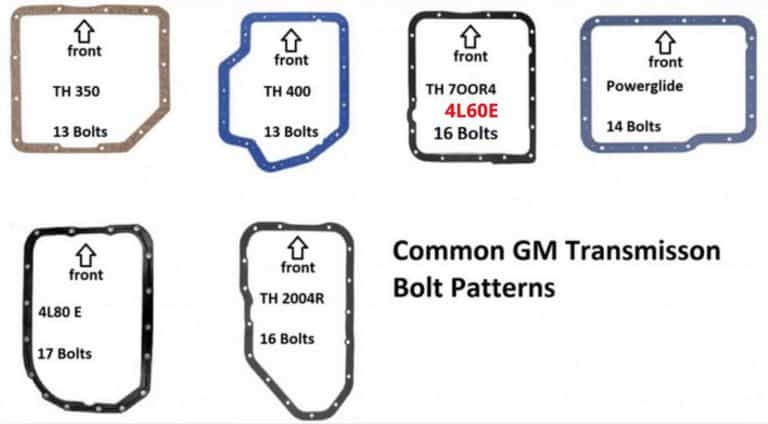
How to Identify TH350, TH400, 700R4, 200R4
TH350: 13-bolt pan, roughly square with one corner cut; cable kickdown at throttle; vacuum modulator at rear passenger side; smaller case.
TH400: 13-bolt pan with an irregular “elephant ear” bulge; no cable (electric kickdown plug on case); larger bell and main case; vacuum modulator at RR of case.
700R4: 16-bolt pan—rectangle with an angled rear corner; has TV cable on the case; usually a 4-pin (or similar) electrical plug for lockup.
200-4R: 16-bolt pan that’s almost square (more symmetric than 700R4); TV cable; case is shorter; many have dual-pattern bell.
Strength, Use Cases, and Typical Limits
TH350: ~300–350 lb-ft in healthy form. Cheap to build, shifts nice. With upgrades (drums, sprags, frictions, valvebody) handles 450+ hp street duty.
TH400: Factory tank. 450–500+ lb-ft stock; built versions live behind big-block torque and boosted combos. Heavier parasitic loss than TH350.
700R4: Early units (’82–’84) weak. ’85-up (30-spline input, aux VB) much better. Stock ~300–350 lb-ft; built 700R4s handle serious power if done right. The TV cable is life or death—misadjustment burns it down fast.
200-4R: Stock mid-300 lb-ft territory; the BRF/“GN” code units are strongest from the factory. With proper internals (hardened stator, better drum/sprag, valvebody, band), 200-4Rs live at 500–600+ hp in street cars and shift sweet.
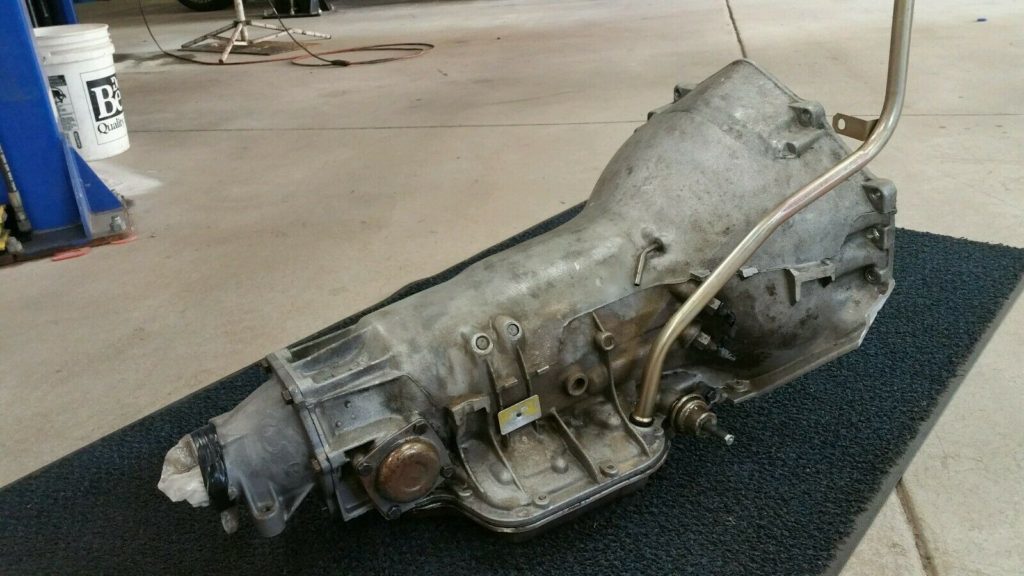
Pros & Cons of the TH350, TH400, 700R4, 200R4
TH350
Pros: Compact/light; inexpensive; tons of parts; nice gear split for NA street cars; easy kickdown cable.
Cons: No OD; at highway speeds with 3.55+ gears it’s buzzy; not as strong as TH400 stock.
TH400
Pros: Strongest factory core; tolerant of abuse; abundant heavy-duty parts; great for drag/boost/big cubes.
Cons: No OD; heavier; more parasitic loss; large-yoke output and length can complicate swaps.
700R4
Pros: Deep 1st (3.06) for snappy launch with tall tires; 0.70 OD for freeway; common cores; lockup converter for cool cruising.
Cons: TV cable setup is critical; early cores weak; slightly larger/longer than TH350 short—often needs crossmember/driveshaft changes.
200-4R
Pros: 0.67 OD (even taller than 700R4); compact; length close to TH350 short (easy swaps); many are dual-pattern bell; great ratio spacing.
Cons: Needs proper build to live at higher power; TV cable sensitivity; fewer “junkyard good” cores today.
Control Systems & What They Mean
TH350/TH400: Vacuum modulator + governor control upshifts; tuning via modulator and governor weights/springs.
TH350 kickdown cable and TH400 electric kickdown just trigger downshifts/full-throttle behavior.
700R4/200-4R: TV cable controls line pressure, shift timing, and throttle feel—not just kickdown. It must be set to spec (WOT pull-length and idle geometry). Add a lockup control (ECM, pressure switch, or aftermarket kit) for converter clutch.
Real-World Cruise RPM (70 mph, 27" tire)
(Use this to feel the OD payoff. Numbers are approximate.)
| Rear Gear | 1:1 (TH350/TH400) | 0.70 (700R4) | 0.67 (200-4R) |
|---|---|---|---|
| 3.08 | 2680 rpm | 1880 rpm | 1800 rpm |
| 3.55 | 3090 rpm | 2165 rpm | 2070 rpm |
| 3.73 | 3250 rpm | 2275 rpm | 2180 rpm |
| 4.10 | 3570 rpm | 2500 rpm | 2390 rpm |
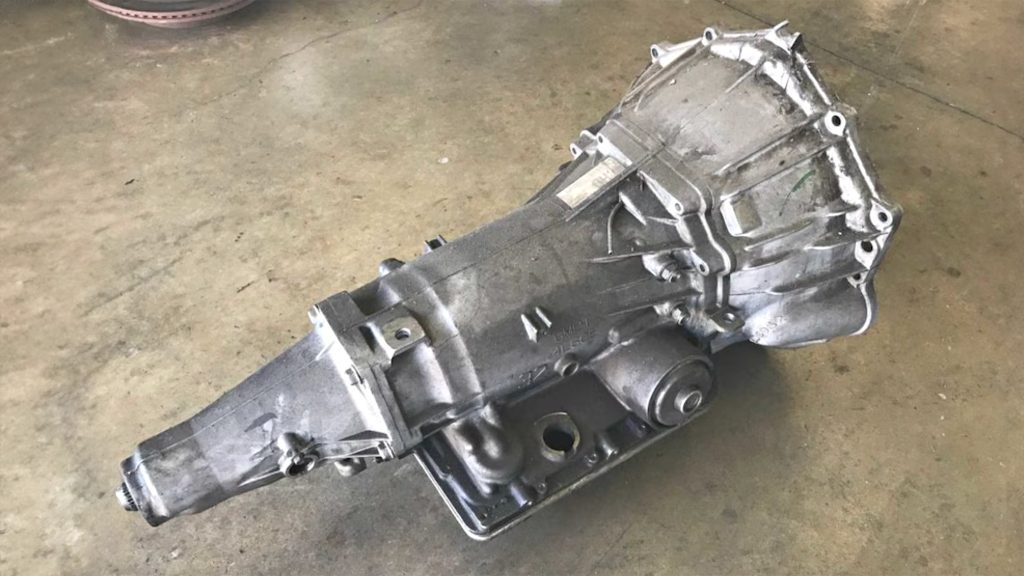
Swap Tips For Classics, Muscle Cars, and Hot Rods
Carb linkage geometry matters for 700R4/200-4R TV cables (e.g., Holley, Edelbrock brackets/TV geometry correctors). Wrong geometry = wrong line pressure at part-throttle.
Crossmember: be ready to slide or re-drill; many aftermarket crossmembers make this a bolt-in.
Driveshaft: measure after mockup; 700R4 often needs a shorter shaft vs TH350 short. Keep proper slip-yoke engagement (~¾–1″ showing at ride height).
Converter: For ODs, pick a converter that matches cam/stall and has lockup (and a control plan).
Speedometer drive: gears or VSS adapters may be needed.
Rear gear pairing:
NA street with mild cam: 3.42–3.73 + 700R4/200-4R is money.
Big-block torque + no OD needs: TH400 with 3.31–3.55 keeps it happy.
Light street/strip small-block: TH350 with 3.55–3.73 if you don’t care about highway rpm.
Identifying “Good” Cores
TH400: Look for clean case threads, minimal pump face scoring, and a correct big-yoke output for your driveshaft plans.
TH350: Avoid stripped cooler fittings and cracked bell ears; check endplay.
700R4: Prefer ’85-up (30-spline input). ’87-’90 cores are best of the cable era.
200-4R: Codes like BRF (Grand National/T-Type) are strongest stock. Even non-BRF units can be built stout; just budget internals.
Which One Should You Choose?
Max durability, big torque, no OD needed: TH400.
Budget, compact, cruiser that doesn’t live on interstates: TH350.
Street car that needs highway legs and snappy launch: 700R4 (good parts + perfect TV setup).
Classic swap where length matters and you want the tallest OD: 200-4R (especially handy with dual-pattern bell).
Each of these GM transmissions represents a distinct era and purpose in drivetrain evolution. The brute-force simplicity of the TH400 to the highway-friendly efficiency of the 200-4R and 700R4. The TH350 remains the everyman’s gearbox: affordable, compact, and adaptable for countless street builds. The TH400 is the proven heavyweight champion, still the go-to for drag cars and torque monsters. The 700R4 brought GM into the overdrive age with deep gearing and modern road manners, while the 200-4R earned cult status for its compact design and dual bolt pattern versatility. Ultimately, the “best” transmission depends on what you drive, how you drive, and what you expect from it. Pick the one that matches your combination—not just for strength or nostalgia, but for how it transforms the feel and function of your classic GM ride.
If you need any parts to swap a transmission in your classic Chevrolet, or if you need help choosing the perfect transmission, give our friendly techs a call at (203) 235-1200 or hop on SS396.com!

